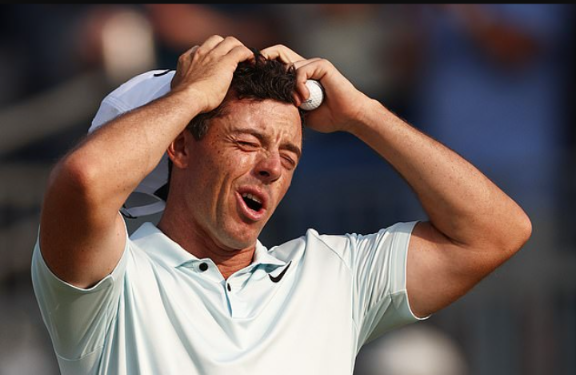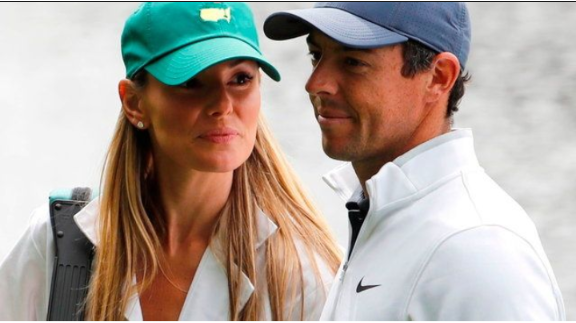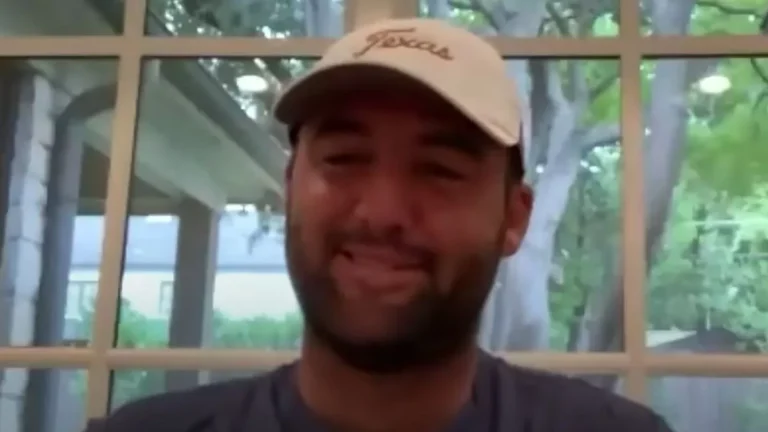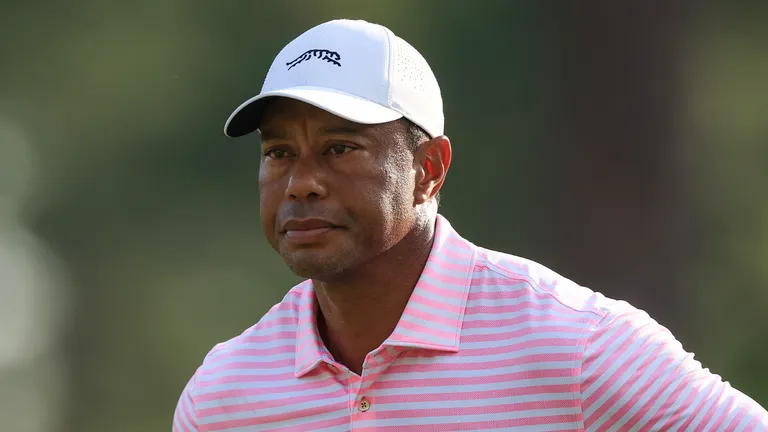Why Greg Norman is a better man than Rory McIlroy
In the chronicles of gut-wrenching final rounds at major golf tournaments, few can compare to the harrowing experience of Greg Norman’s closing 78 at the 1996 Masters. Leading by six strokes at the start, Norman ultimately lost by five to Nick Faldo, a collapse marked by two costly detours into Rae’s Creek and the unforgettable…
In the chronicles of gut-wrenching final rounds at major golf tournaments, few can compare to the harrowing experience of Greg Norman’s closing 78 at the 1996 Masters. Leading by six strokes at the start, Norman ultimately lost by five to Nick Faldo, a collapse marked by two costly detours into Rae’s Creek and the unforgettable image of him sprawled on the 15th green in despair. Despite the agony of the defeat, one often overlooked detail is Norman’s grace in the face of loss. He warmly embraced Faldo, spoke to the media, and owned up to his failings under pressure.
“I screwed up,” Norman candidly admitted. “It’s all on me. I know that, but losing the Masters is not the end of the world. I let this one get away, but I still have a pretty good life. I’ll wake up tomorrow still breathing, I hope. All these hiccups, they must be for a reason. It’s a test – I just don’t know what the test is yet.”
Norman’s reaction, for a figure often viewed as irredeemably brash, beautifully encapsulated what it meant to lose the most coveted prize in golf. It also conveyed an admirable perspective, reminding everyone that despite the narrative of one man’s world collapsing, he could find solace the next morning in his yachts, wealth, and health.
This stands in stark contrast to the scenes in North Carolina last Sunday night (Monday morning AEST). After missing two three-foot putts in his last three holes and losing the U.S. Open title, Rory McIlroy made a hasty exit from Pinehurst. There were no remarks to the media, no appearance at the runner-up ceremony, and, most glaringly, no word of congratulations to the winner, Bryson DeChambeau. Understandably, DeChambeau was taken aback by the snub, as such behavior is particularly frowned upon in a sport so bound by codes of honor. Even though McIlroy later took to social media to congratulate DeChambeau, his initial reaction was seen as petulant and disrespectful.
It’s not presumptuous to suggest that Jack Nicklaus, whom McIlroy often seeks for advice in his pursuit to end a decade-long major drought, would be unimpressed by such behavior. Nicklaus, who won 18 majors and finished second in 19 others, always handled disappointment with grace. One of the enduring images of Nicklaus is from the 1977 “Duel in the Sun” with Tom Watson at Turnberry. Despite being edged out by Watson, Nicklaus walked off with his arm around his rival’s shoulders.
Nicklaus’ principle was to never short-change his public, famously saying, “My father said, ‘Make ’em feel like you are happy for them, even if you don’t mean it.’” This approach helped him become celebrated not just as golf’s greatest winner, but also as its finest loser. McIlroy, despite his candid and often charming nature, has struggled to embody this ethos. His instinct to flee after disappointment, as he did following last year’s Masters by leaving without a word after missing the cut, reveals an unflattering side to his character.
McIlroy is highly respected for his empathy, honesty, and intellectual curiosity that often extends beyond golf. For instance, the morning after the Brexit vote, the first subject he wanted to discuss was Nigel Farage. However, he has also positioned himself as the moral compass of the sport, especially critical of Greg Norman’s role with the Saudi-backed LIV Golf Tour. “The guy who’s spearheading that tour has 20 wins on the PGA Tour,” McIlroy said after winning his 21st title at the 2022 Canadian Open. “I wanted to get one ahead of him, and I did.”
Say what you will about Norman – and McIlroy has said plenty – but the Australian demonstrated how to accept defeat with dignity and grace 28 years ago. In contrast, McIlroy, by ignoring DeChambeau and quickly leaving for Florida, failed to exhibit these qualities. His actions painted him less as golf’s leading ambassador and more as a petulant figure caught up in his own melodrama.






